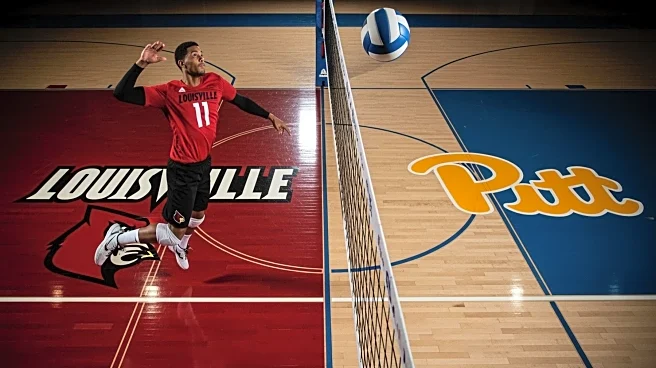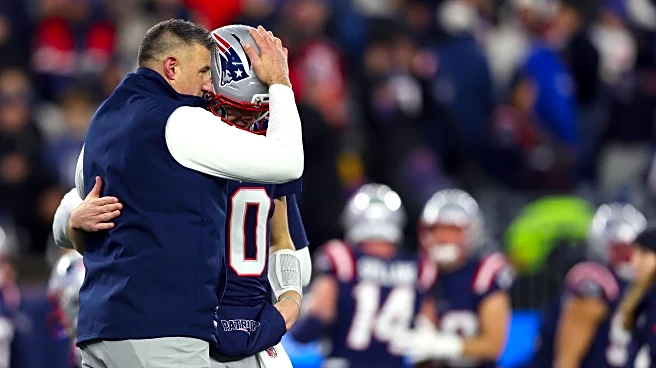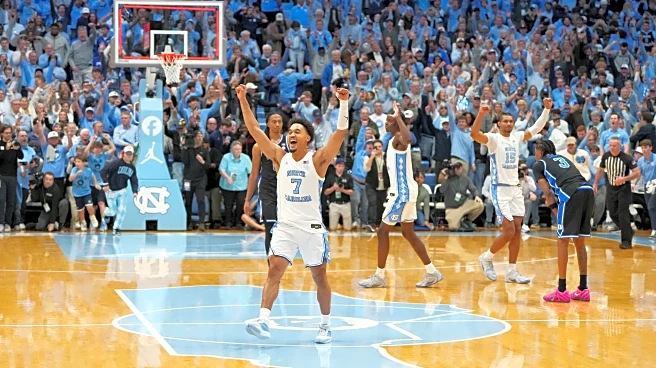What's Happening?
The Louisville Cardinals and the Pitt Panthers, two prominent NCAA volleyball teams, are set to face each other in a highly anticipated match. Louisville, currently ranked No. 4, has been rebuilding its team after losing key players and their head coach,
Dani Busboom-Kelly, to Nebraska. Despite these changes, Louisville leads the ACC with a 14-2 record. Pitt, ranked No. 6, is also performing well, with junior Olivia Babcock spearheading their offensive efforts. The match will be broadcast live on ESPN and available for streaming on Fubo, offering fans multiple ways to watch the game. The match is scheduled for Sunday, October 19, at 1 p.m. ET at the L&N Federal Credit Union Arena in Louisville, Kentucky.
Why It's Important?
This match is significant as it features two top-ranked teams in NCAA volleyball, both vying for dominance in the ACC. Louisville's ability to maintain a strong performance despite losing key players and their coach demonstrates resilience and strategic depth. For Pitt, the match offers a chance to avenge their previous season-ending loss to Louisville. The outcome could influence rankings and set the tone for the remainder of the season. Additionally, the match highlights the competitive nature of college volleyball and the importance of adaptability and leadership in sports teams.
What's Next?
Following this match, both teams have a series of upcoming games that will further test their skills and strategies. Louisville will face Duke, North Carolina, and Notre Dame in the coming weeks, while Pitt will continue to compete against other top teams in the conference. The results of these matches will be crucial in determining their standings in the ACC and their potential for postseason play. Fans and analysts will be watching closely to see how each team adapts and performs under pressure.
Beyond the Headlines
The match between Louisville and Pitt underscores the broader dynamics of college sports, where team composition and leadership changes can significantly impact performance. It also highlights the role of media and streaming services in expanding access to sports events, allowing fans to engage with their favorite teams in new ways. The evolution of college sports broadcasting reflects broader trends in media consumption and the growing importance of digital platforms.















